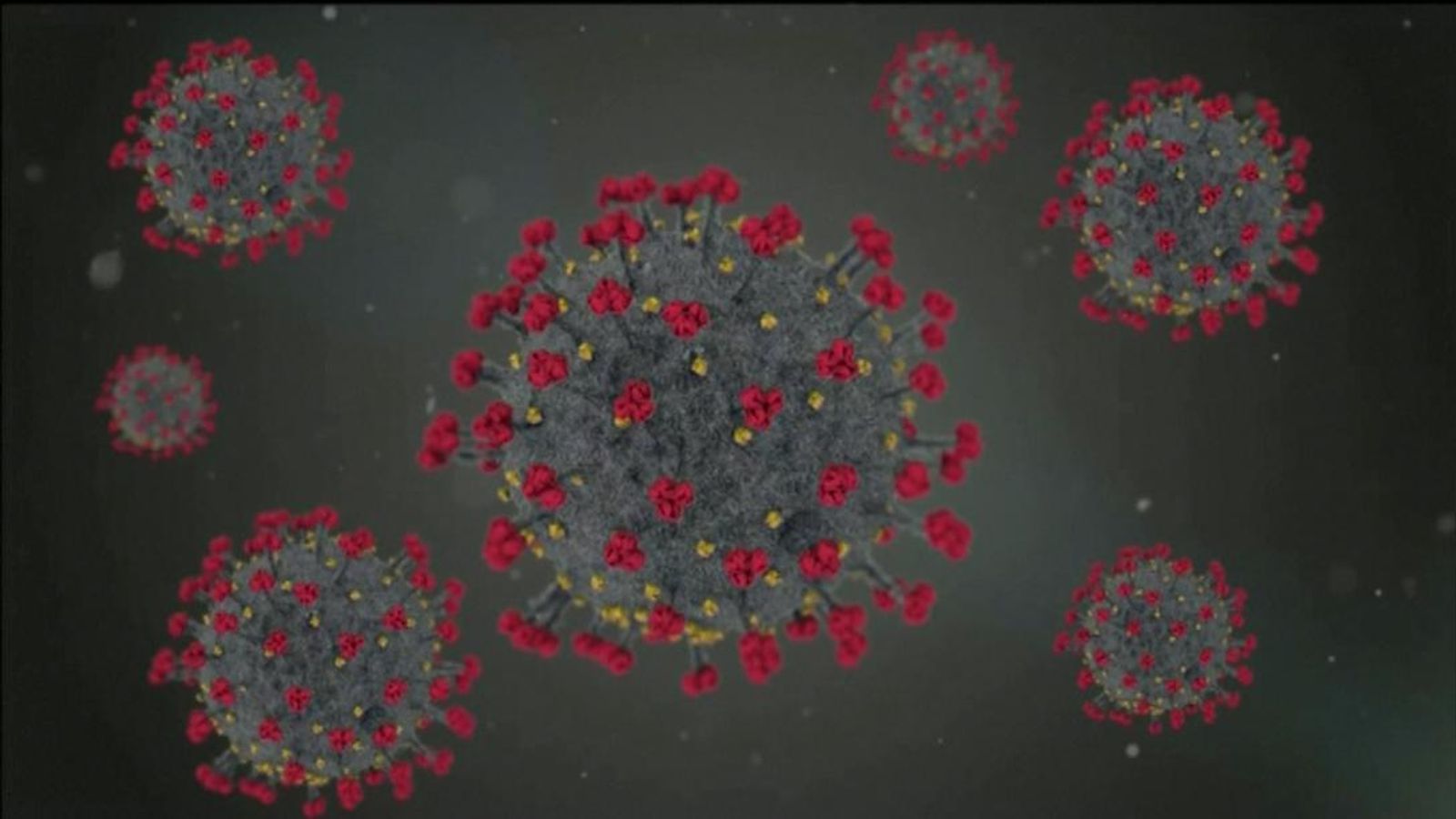The Omicron COVID variant multiplies 70 times faster than Delta in human airways, according to researchers.
The study, by researchers in Hong Kong, also suggests the variant replicates less well in human lung tissue compared with the original strain of the virus – perhaps indicating a lower severity of disease.
But the professor who lead the research has warned that the “overall threat from Omicron variant is likely to be very significant”.
Dr Michael Chan Chi-wai said it is important to consider “that the severity of disease in humans is not determined only by virus replication but also by the host immune response to the infection”.
He added: “It is also noted that, by infecting many more people, a very infectious virus may cause more severe disease and death even though the virus itself may be less pathogenic.
“Therefore, taken together with our recent studies showing that the Omicron variant can partially escape immunity from vaccines and past infection, the overall threat from Omicron variant is likely to be very significant.”
The study, published by the LKS Faculty of Medicine at the University of Hong Kong (HKUMed), found researchers had successfully isolated the variant and used lung tissue removed for treatment to investigate the new mutation.
COVID: Football fans say they’ll keep going to matches ‘for as long as we’re allowed’ – despite virus advice
COVID-19: Increasing number of Omicron patients going into hospital a ‘nailed on prospect’ Chris Whitty warns after UK coronavirus cases hit record high
COVID-19: Chancellor Rishi Sunak urged to give extra support to hospitality businesses suffering mass cancellations
It compared Omicron with the original strain and with Delta.
Follow the Daily podcast on Apple Podcasts, Google Podcasts, Spotify, Spreaker
The study found Omicron “replicates faster than the original Sars-CoV-2 virus and Delta variant in the human bronchus”.
Twenty four hours after infection, Omicron “replicated around 70 times higher than the Delta variant and the original Sars-CoV-2 virus”.
Please use Chrome browser for a more accessible video player
It added: “In contrast, the Omicron variant replicated less efficiently (more than 10 times lower) in the human lung tissue than the original Sars-CoV-2 virus, which may suggest lower severity of the disease.”
Reacting to the study, senior clinical lecturer at the University of Exeter Dr David Strain said it was unclear how the results would compare to that seen in patients.
He said: “The 70-fold increase in replication is of concern which does account for the the increased transmissibility of the virus.
“There is a lack of clarity however, as to how this 10-fold reduction in lung infectivity in this lab-based study will translate in patients.
“At first glance it looks good news, however if the virus can replicate 70 times quicker, but infects 10 times slower, that still results in a seven-fold increased risk of disease.”






















